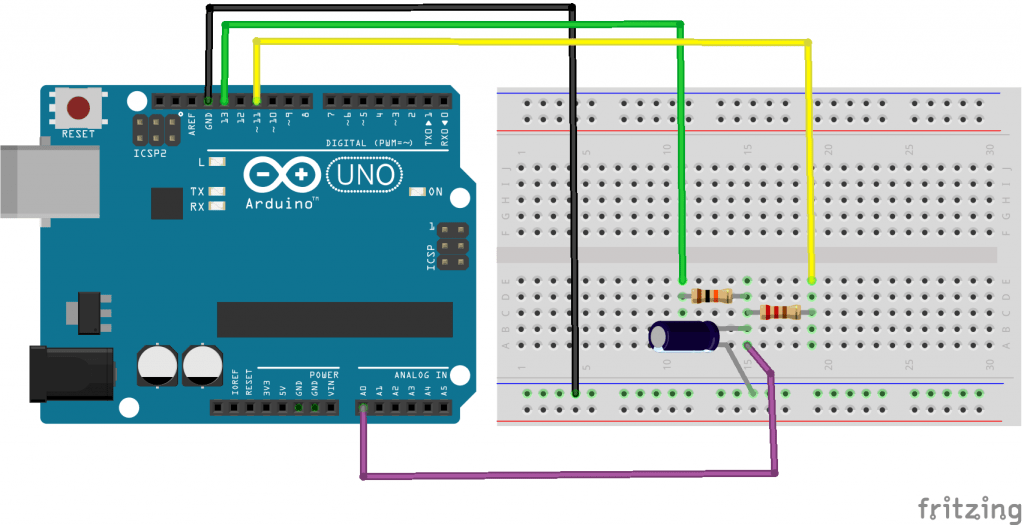I fancied trying the https://www.arduino.cc/en/Tutorial/CapacitanceMeter , to look at the theory visit that page. I was wanting to see how accurate this is and also wanted to test this on other variants such as the Chipkit and the MSP_EXP430G2 to compare performance between these development boards
I selected an Arduino Uno for this.
You will need a Breadboard, 10k Resistor, 220 resistor and some hookup wire
Layout
Code
[codesyntax lang=”cpp”]
#define analogPin 0
#define chargePin 13
#define dischargePin 11
#define resistorValue 10000.0F
unsigned long startTime;
unsigned long elapsedTime;
float microFarads;
float nanoFarads;
void setup()
{
pinMode(chargePin, OUTPUT);
digitalWrite(chargePin, LOW);
Serial.begin(9600);
}
void loop()
{
digitalWrite(chargePin, HIGH);
startTime = millis();
while(analogRead(analogPin) < 648){
}
elapsedTime= millis() - startTime;
microFarads = ((float)elapsedTime / resistorValue) * 1000;
if (microFarads > 1)
{
Serial.print((long)microFarads);
Serial.println(" microFarads");
}
else{
nanoFarads = microFarads * 1000.0;
Serial.print((long)nanoFarads);
Serial.println(" nanoFarads");
delay(500);
}
digitalWrite(chargePin, LOW);
pinMode(dischargePin, OUTPUT);
digitalWrite(dischargePin, LOW);
while(analogRead(analogPin) > 0){
}
pinMode(dischargePin, INPUT);
}
[/codesyntax]
results
I tested this with several capacitors, one thing I noticed was with a 470uF capacitor the first reading was off, 402uF reported. After that all the readings were about the 470uF mark. In the screen capture above you can see a 226uF reading
I also tested 10uF, 22uf and 47uF capacitors as well and the readings were pretty accurate.
We’ll play about with this in future articles



